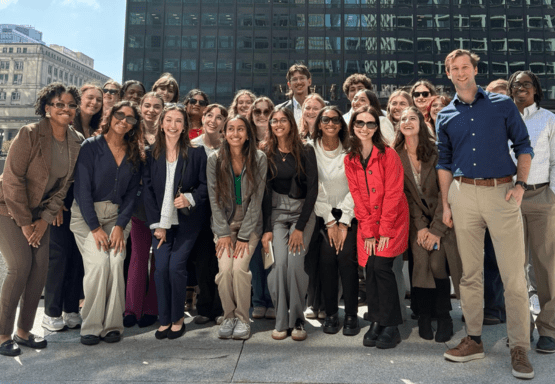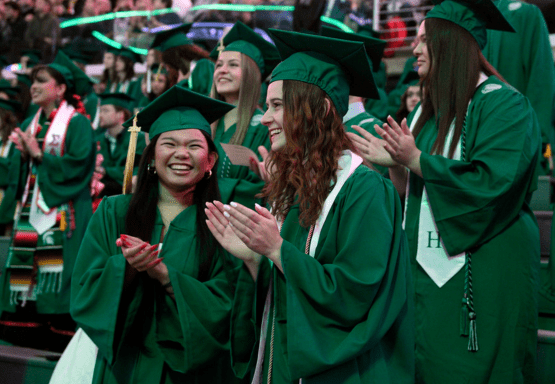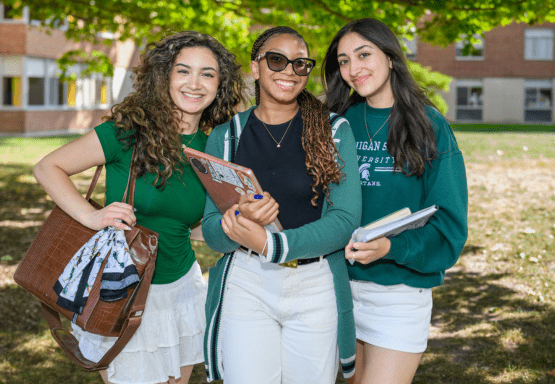As a young girl growing up in a Houston suburb, Amy Simon loved to play school, pretending to be the teacher. Simon no longer imagines her vocation as she’s been making an impact as both a teacher and scholar since joining Michigan State University in August 2016.
Described by her colleague Yael Aronoff, professor of international relations and director of The Michael and Elaine Serling Institute of Jewish Studies and Modern Israel, as a “rising star,” Aronoff says Simon has become invaluable to the university and the larger MSU and metropolitan Detroit Jewish community.
“Dr. Simon consistently proves to be an exceptional and innovative teacher and mentor, an innovative and productive scholar, and a regular contributor to making MSU a safer and more inclusive campus,” said Aronoff.
Simon, an assistant professor of history and Jewish studies in the James Madison College and the Department of History in the College of Social Science, has received the university’s prestigious Teacher-Scholar Award and will be recognized during the annual All-University Awards Convocation scheduled for 3:30 p.m., Wednesday, May 11 at the Kellogg Center.
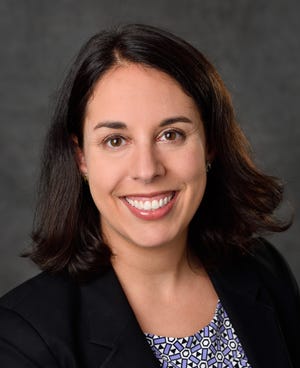
Supported by the Office of University Development, Teacher-Scholar Awards are awarded to faculty who, early in their careers, have earned the respect of students and colleagues for their devotion to and skill in teaching, and whose instruction is linked to and informed by their research and creative activities.
“Amy’s dedication to her students, the advancement of Holocaust education and combatting antisemitism is apparent to all who are familiar with her work. JMC is fortunate to have her not only for her scholarship but also for her steadfast devotion to meaningful instruction,” said Cameron Thies, dean and MSU Foundation Professor.
Simon’s research examines victim representations of perpetrators in Yiddish diaries written in the Warsaw, Lodz and Vilna ghettos during World War II. Her interest in the West Germanic language Yiddish, historically spoken by Ashkenzai Jews, is rooted in Simon’s exploration of her own Jewish history and identity.
Raised in a very secular Jewish family, Simon knew little about Judaism. During high school, after a trip to Europe where she toured many churches and cathedrals, she was inspired to explore her own religious background. Not only did she reach out to a local rabbi and eventually become an honorary member of the congregation, but she also decided to volunteer at the Holocaust Museum in Houston where she could simultaneously explore the religion and Judaic studies.
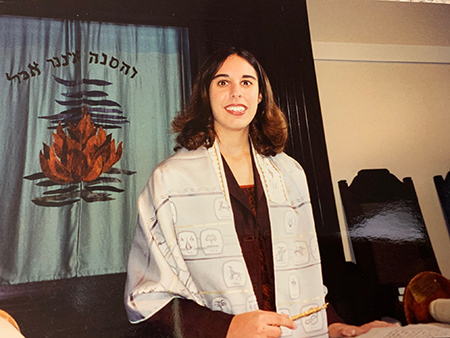
While Simon’s interest in Jewish studies soared, she did not intend to pursue a career in it. That is, until she studied in England during her junior year of college. During that semester, she went on a trip to Berlin.
“I was shocked by the ongoing presence of the history of WWII in Berlin at that time. It was 2000, and the city was still rebuilding from reunification. There were WWII memorials and bullet-riddled walls throughout the city,” said Simon, “And that’s when the lightbulb went on. I realized, I wanted to devote my education to Holocaust studies.”
Simon’s interest in diaries and narratives evolved during her undergraduate studies, but how they’d influence her graduate research came later after her first visit to a Nazi concentration camp in 2001.
Simon calls her position as the inaugural William and Audrey Farber Family Endowed Chair of Holocaust Studies and European Jewish History kismet. “This dream job came up shortly after finishing my program in 2015,” said Simon.
At the time MSU invited Simon to interview, she was living in Washington D.C. as a part-time researcher at the United States Holocaust Memorial Museum.
“I was heavily pregnant with twins when I was called to interview. MSU accommodated my need to interview virtually before the world was doing interviews in a virtual setting,” Simon said.
The first interview went so well JMC’s former dean, Sherman Garnett, flew out to D.C. to meet Simon.
What was apparent then is even more obvious today. And Simon’s colleagues couldn’t be happier as the overwhelming consensus is Simon is more than deserving of the recognition.
Anna Pegler-Gordon, JMC professor and core member of the Asian Pacific American Studies Program, wrote, “This is very well-deserved for Amy’s hard work with undergraduate students and her community engagement. Amy’s work helping all of us — including me — to better understand antisemitism is deeply needed.”
Since Simon’s arrival, she’s been working on her teaching. “It’s always been my priority. Day-to-day in the classroom, you are going to make a much bigger impact teaching thousands of students rather than scholarship alone — no matter what you publish,” Simon said.
“As [Holocaust] survivors pass away, students aren’t having the experiences I had when I met with many 20 years ago. I see this as part of my responsibility to share these stories…to keep these stories alive.”
Simon’s deep interest in diaries and narratives, coupled with an interest in Yiddish and the role of perpetrators was Simon’s gateway to examining how perpetrators are depicted in diaries and uncovering an empathic history of the Jewish ghettos, particularly through the lens of victims’ perpetration.
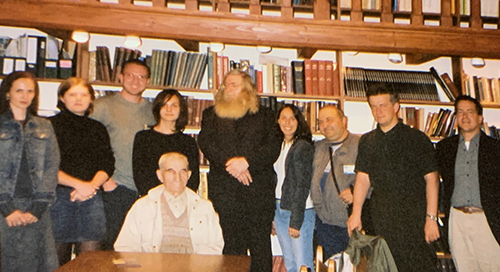
To be celebrated as both teacher and scholar, especially in a college emphasizing teaching and student-faculty rapport, Simon hesitates to claim the spotlight. “I’m not sure I deserve this more than other colleagues as they are extraordinary, especially in JMC,” said Simon, “But to be recognized pre-tenure helps a great deal with motivation and encouraging confidence.”
“Huge thanks to Professor Yael Aronoff for all her support since the beginning, Kirsten Fermaglich in history and Anna Pegler-Gordon. They have been tremendous as colleagues, mentors and role models. And of course, my parents and husband who have been amazing, supporting me when it was uncharted territory.”
To be a scholar requires both passion and patience. To be a teacher is that and more. “Teaching is my constant project,” said Simon. One that clearly pays dividends.
MSU alumnus Daniel Baum (’18) was a student of Simon’s in the fall of 2017 when he enrolled in HST-392: History of the Holocaust. In a reference letter on Simon’s behalf he wrote, “I wouldn’t be where I am today — or who I am today — without Dr. Simon.”
Baum praised Simon’s “unique approach to teaching and scholarship,” attributing her methods to helping give voice to his family’s Holocaust story and allowing him to discover “how storytelling can help begin the process of healing.”
Another former student and advisee, Mateusz Leszczynski (IR ’19), who is pursuing his Ph.D. in political science at the University of Colorado Boulder, shared several examples of Simon’s impact on his education and his decision to pursue a career in academia. “I wholeheartedly believe that had I not had such fantastic advising by Dr. Simon, I would not have had the confidence to choose the academic path,” Leszczynski said.
“As an undergraduate, I received from Dr. Simon the top mentorship that one can obtain from a professor at the graduate level. Although I am now in graduate school, I still consider Professor Simon as a continuing mentor, to whom I turn to for advice,” said Leszczynski.
As Simon continues to raise the bar in her scholarship — she is working on an upcoming article about researching with Holocaust diaries, in addition to a chapter for educators who use diaries to teach — teaching is in many ways the gift that keeps giving. As Simon says, “There’s no end date.”
“You can make your own way and there’s so much opportunity to make an impact,” said Simon.
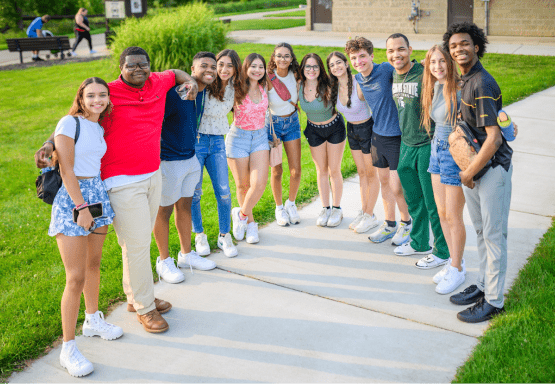
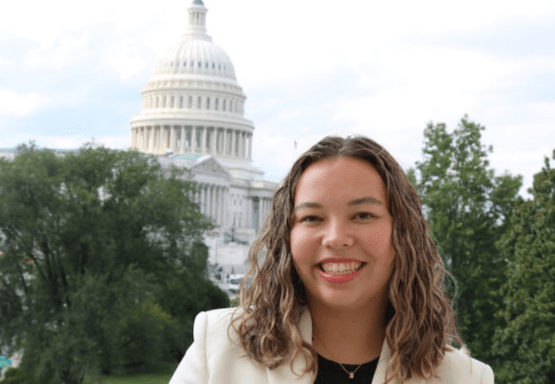
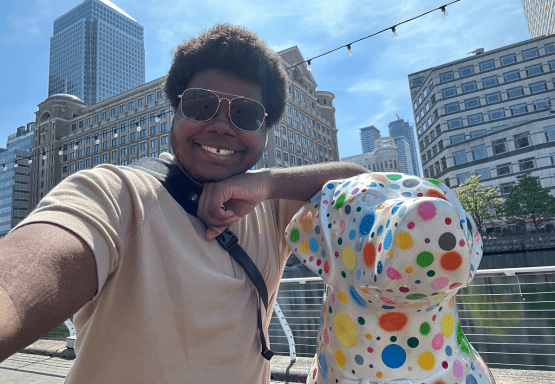
.png?h=384&iar=0&w=555)
